第87章 The Revival of Antiquity Introductory (37)
The Natural Sciences in Italy For the position of the Italians in the sphere of the natural sciences, we must refer the reader to the special treatises on the subject, of which the only one with which we are familiar is the superficial and depreciatory work of Libri.The dispute as to the priority of particular discoveries concerns us all the less, since we hold that, at any time, and among any civilized people, a man may appear who, starting with very scanty preparation, is driven by an irresistible impulse into the path of scientific investigation, and through his native gifts achieves the most astonishing success.Such men were Gerbert of Rheims and Roger Bacon.That they were masters of the whole knowledge of the age in their several departments was a natural consequence of the spirit in which they worked.When once the veil of illusion was torn asunder, when once the dread of nature and the slavery to books and tradition were overcome, countless problems lay before them for solution.It is another matter when a whole people takes a natural delight in the study and investigation of nature, at a time when other nations are indifferent, that is to say, when the discoverer is not threatened or wholly ignored, but can count on the friendly support of congenial spirits.That this was the case in Italy is unquestionable.The Italian students of nature trace with pride in the 'Divine Comedy' the hints and proofs of Dante's scientific in-terest in nature.On his claim to priority in this or that discovery or reference, we must leave the men of science to decide; but every layman must be struck by the wealth of his observations on the external world, shown merely in his picture and comparisons.He, more than any other modern poet, takes them from reality, whether in nature or human life, and uses them never as mere ornament, but in order to give the reader the fullest and most adequate sense of his meaning.It is in astronomy that he appears chiefly as a scientific specialist, though it must not be forgotten that many astronomical allusions in his great poem, which now appear to us learned, must then have been intelligible to the general reader.Dante, learning apart, appeals to a popular knowledge of the heavens, which the Italians of his day, from the mere fact that they were a nautical people, had in common with the ancients.This knowledge of the rising and setting of the constellations has been rendered superfluous to the modern world by calendars and clocks, and with it has gone whatever interest in astronomy the people may once have had.Nowadays, with our schools and handbooks, every child knows--what Dante did not know--that the earth moves round the sun; but the interest once taken in the subject itself has given place, except in the case of astronomical specialists, to the most absolute indifference.
The pseudo-science which dealt with the stars proves nothing against the inductive spirit of the Italians of that day.That spirit was but crossed, and at times overcome, by the passionate desire to penetrate the future.We shall recur to the subject of astrology when we come to speak of the moral and religious character of the people.
The Church treated this and other pseudo-sciences nearly always with toleration; and showed itself actually hostile even to genuine science only when a charge of heresy together with necromancy was also in question--which certainly was often the case.A point which it would be interesting to decide is this: whether and in what cases the Dominican (and also the Franciscan) Inquisitors in Italy were conscious of the falsehood of the charges, and yet condemned the accused, either to oblige some enemy of the prisoner or from hatred to natural science, and particularly to experiments.The latter doubtless occurred, but it is not easy to prove the fact.What helped to cause such persecutions in the North, namely, the opposition made to the innovators by the upholders of the received official, scholastic system of nature, was of little or no weight in Italy.Pietro of Abano, at the beginning of the fourteenth century, is well known to have fallen a victim to the envy of another physician, who accused him before the Inquisition of heresy and magic; and something of the same kind may have happened in the case of his Paduan contemporary, Giovannino Sanguinacci, who was known as an innovator in medical practice.He escaped, however, with banishment.
Nor must it be forgotten that the inquisitorial power of the Dominicans was exercised less uniformly in Italy than in the North.Tyrants and free cities in the fourteenth century treated the clergy at times with such sovereign contempt that very different matters from natural science went unpunished.But when, with the fifteenth century, antiquity became the leading power in Italy, the breach it made in the old system was turned to account by every branch of secular science.
Humanism, nevertheless, attracted to itself the best strength of the nation, and thereby, no doubt, did injury to the inductive investigation of nature.Here and there the Inquisition suddenly started into life, and punished or burned physicians as blasphemers or magicians.In such cases it is hard to discover what was the true motive underlying the condemnation.But even so, Italy, at the close of the fifteenth century, with Paolo Toscanelli, Luca Pacioli and Leonardo da Vinci, held incomparably the highest place among European nations in mathematics and the natural sciences, and the learned men of every country, even Regiomontanus and Copernicus, confessed themselves its pupils.This glory survived the Counter-reformation, and even today the Italians would occupy the first place in this respect if circumstances had not made it impossible for the greatest minds to devote themselves to tranquil research.